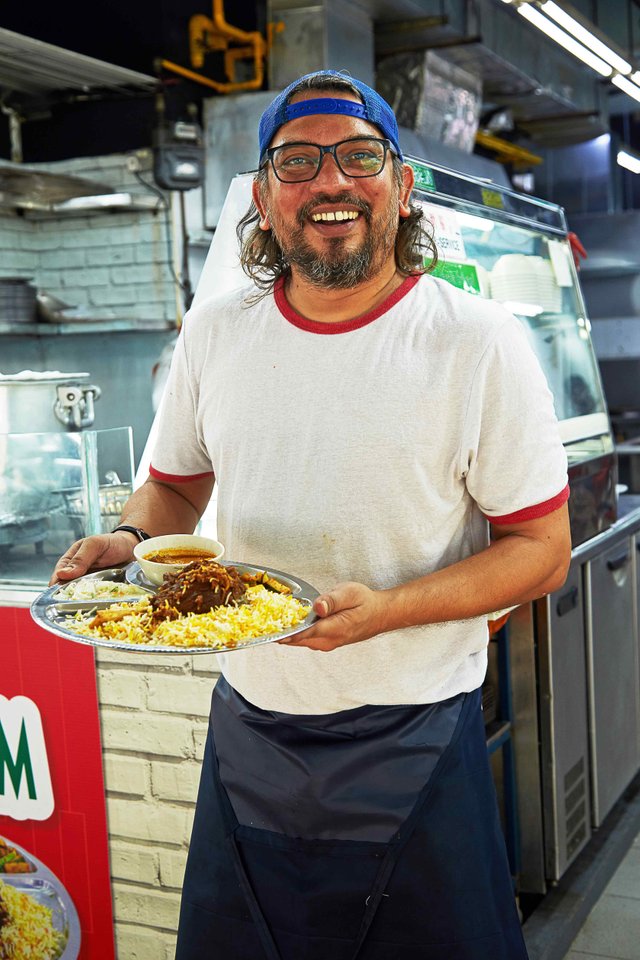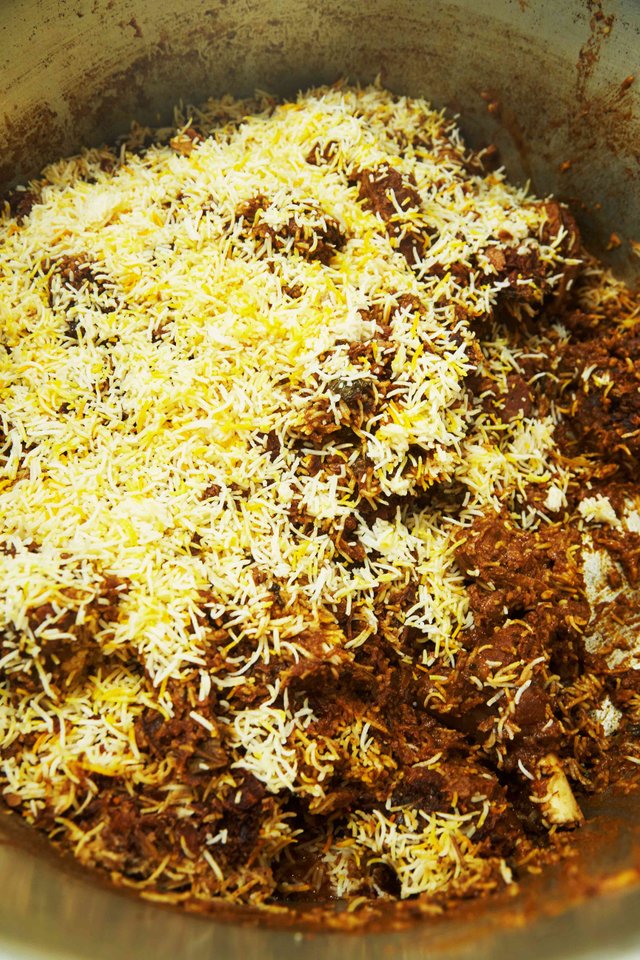“As you know, food prices have gone up so this is a gesture of appreciation for our customers who have been supporting us through the years,” says Rafi, who recently relocated his famous Ali Nachia Briyani stall that was started by his father.

When he’s not coaching football these days, former national footballer Rafi Ali, 49, is busy running his kopitiam stall Ali Nachia Briyani. One of Singapore’s most beloved dum biryani joints, it was started by Rafi’s father Mohammed Ali Latif, 72, at the old Tanjong Pagar Railway Station in 2002.
The stall has shifted a few times since. In 2011 it relocated to Tanjong Pagar Plaza after the railway station ceased operations, and again to a shophouse at Hoe Chiang Road in 2020 due to a rental increase. The shophouse’s lease ended this year, and Rafi moved his stall to a Kaki Bukit coffeeshop in June.
Lower prices for biryani

But instead of increasing his menu prices due to global inflation, Rafi (pictured above) has knocked $2 off each plate of his biryani after relocating. The lowered prices will stay until the end of this year. “As you know, food prices have gone up so this is a gesture of appreciation for our customers who have been supporting us through the years,” Rafi explains, adding that “this makes it more affordable for people to eat our biryani.”
Portions remain the same
According to Rafi, nothing has changed for his biryani except for its prices, which start from $6 for the Chicken Briyani. There’s also Mutton Briyani ($7) and Fish Briyani ($7, Fridays only). The priciest option is the Lamb Shank Briyani ($21, Saturdays only), which comes with a meaty, tender piece of Australian bone-in lamb shank. Top up $2 for an extra helping of fragrant slow-steamed basmati rice.
Biryani lovingly cooked by Rafi and his parents
Rafi’s parents are still cooking at their stall, and the trio split the laborious work for making the biryani. “My mum is the master of the biryani spices, it’s her own recipe,” shares Rafi, who affectionately calls her “the original Spice Girl”.
4of5
The stall also uses an original rempah recipe created by Rafi’s dad, an ex-wedding caterer who spares no expense in adding precious ingredients like saffron to his rempah mix.
Ali Nachia is open only for lunch service. “But now we also cater for weddings, corporate functions, parties, engagements and so on,” says Rafi, who was part of Singapore’s national football team that memorably won the Tiger Cup in 1998. Considered one of the best local midfielders, he retired from playing professionally in 2008.
5of5
Rafi’s previous Hoe Chiang Road kopitiam had stalls run by familiar faces from our local music scene: A kaya toast and teh tarik stall which Rafi hired local musician Rostam (aka Shagies keyboardist Tom Ross) to man, and a nasi padang stall helmed by Jive Talkin’ bassist Din Safari, who revived his family-owned Javanese joint Maimon & Son that was founded by his parents near the old Rex Theatre in the ’50s.
But only Rafi’s biryani stall has made the move to Kaki Bukit. Upon our enquiry Rafi informs us that Rostam is no longer working for him, while Din has stopped doing F&B altogether. Other than biryani, Ali Nachia also serves prata (from $1.20 for Prata Kosong), Mee Goreng ($4.50) and Bee Hoon Goreng ($4.50) for lunch. Bigger groups can also go for the nasi ambeng-style Dulang ($38 for chicken; $40 for mutton), which comes with Rafi’s popular homely dalcha (Indian lentil stew).